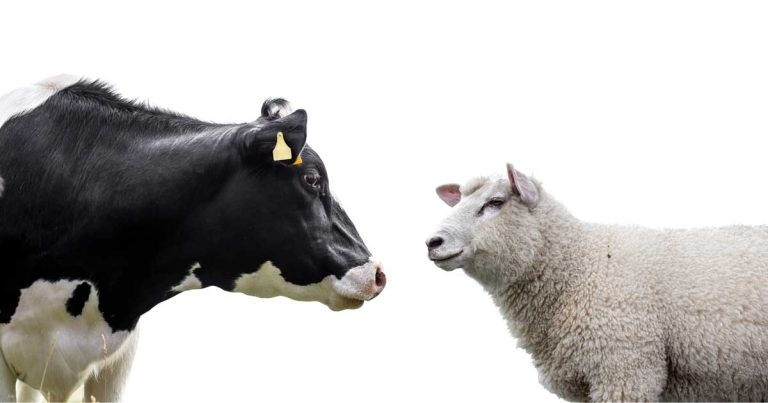2 Jan 2024
Webinar to advise vets on the present situation hears vaccine ultimately needed to tackle outbreak, amid fears about the potential for case numbers to keep rising during 2024.

Image: © Rokfeler / Adobe Stock
Vets have been warned that a new vaccination is likely to be needed to ultimately tackle the present outbreak of bluetongue in southern England.
Tens of thousands of animals are currently estimated to be affected by movement restrictions imposed following confirmation of infections at separate locations in Kent and Norfolk in recent weeks.
But a webinar held to advise vets on the present situation also heard fears of the potential for case numbers to keep rising during 2024.
Sheep Veterinary Society president Joseph Henry highlighted the summer as a key period because of the known link between the virus and midge activity.
He suggested the timing of the virus’ arrival had helped to reduce its impact here thus far, before adding: “The way out of this is vaccination. It’s back to the pharmaceuticals to develop one and there’s a fair bit of pressure going on that.”
As of the latest figures being released on Christmas Eve, 35 animals – most of them cattle – across 18 premises were known to have contracted the BTV-3 strain since it was first detected in England on 11 November.
Most of the infected animals have so far been discovered in Kent, apart from five located in Norfolk.
All of the animals have been culled to prevent further transmission.
During the 19 December session, APHA officials stressed that all the confirmed cases so far were being treated as isolated and there was no current evidence the virus was actively circulating.
Surveillance work is continuing, both to establish the extent of any midge activity and locate any previously undisclosed sites of infection.
Across the two affected counties, around 850 premises where species susceptible to the virus are kept – an estimated 45,000 animals – are within temporary control zones (TCZs) set up following the confirmation of infections.
But, after some attendees raised concerns about potential welfare impacts if the restrictions remain in place for a sustained period, Mandy Nevel, the Agriculture and Horticulture Development Board’s (AHDB) head of animal health and welfare, argued vets had a key role in addressing them before they become apparent.
She said clinicians should encourage farmers to submit applications for movement licences now and provide as much detail as possible about the welfare compromises being experienced.
Mr Henry also recalled his experiences of the foot-and-mouth crisis of 2001 as he said listening to farmers trying to come to terms with the “moral distress” of a disease outbreak was likely to be another vital aspect of vets’ work dealing with the virus, with the reporting of negative results being especially critical.
Although the current BTV-3 strain is thought to mimic the behaviour of the BTV-8 type involved in the UK’s last bluetongue outbreak in 2007, and vaccination was a key tool in eradicating it then, the existing vaccine does not offer any cross-protection.
While other strains are also circulating in Europe, the BTV-3 outbreak has had a particularly severe impact in the Netherlands, where more than 5,600 premises are known to have been affected.
Mr Henry said farmers there were finding up to a quarter of their sheep affected on the first day of an incursion and urged realism about potential treatment options.
He said there was “little good news” to be found in that area from the Dutch experience, adding that clinicians there were suggesting euthanasia should be considered if affected animals had been down or had not eaten for more than 24 hours.
Ruminant Health and Welfare, a coalition of agricultural and veterinary organisations that includes both the BVA and BCVA, has set up a dedicated online information hub with the latest information on the outbreak.
Farmers can telephone its bluetongue hotline, which is open between 9am and 5pm on weekdays, on 024 7771 0386.